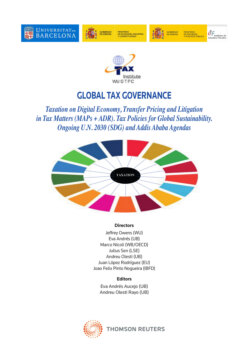Читать книгу Global Tax Governance. Taxation on Digital Economy, Transfer Pricing and Litigation in Tax Matters (MAPs + ADR) Policies for Global Sustainability. Ongoing U.N. 2030 (SDG) and Addis Ababa Agendas - Jeffrey Owens - Страница 26
На сайте Литреса книга снята с продажи.
CHALLENGES OF THE DIGITAL ECONOMY
ОглавлениеAgainst the backdrop of a legacy of trillions annually of tax gap and administrative costs, the digital economy has arisen – bringing forth a range of challenges such as defining value for income taxation, collecting payroll taxes from the sharing and gig economy and defining a regime for collecting consumption taxes from cross border e-commerce. While the OECD is documenting the challenges, current responses and coordinating multilateral dialogue, in many cases jurisdictions are responding on a unilateral basis:
• We see this in income tax with the digital services taxes being implemented while pillar 1 and pillar 2 dialogue continues,
• We see this in payroll tax with countries like Estonia, Denmark and France31 enabling pay as you earn schemes for gig economy workers via the digital platforms they frequent, and
• We see it in consumption tax with Costa Rica and several other Latin American countries withholding VAT on cross border e-commerce through the banking sector.
Each of these unilateral approaches can be seen as a forcing function on policy formulation. With policy lagging and tech inspired business models rapidly advancing and eroding tax bases, countries are taking matters into their own hands.
